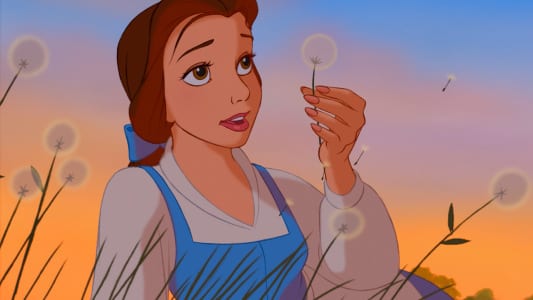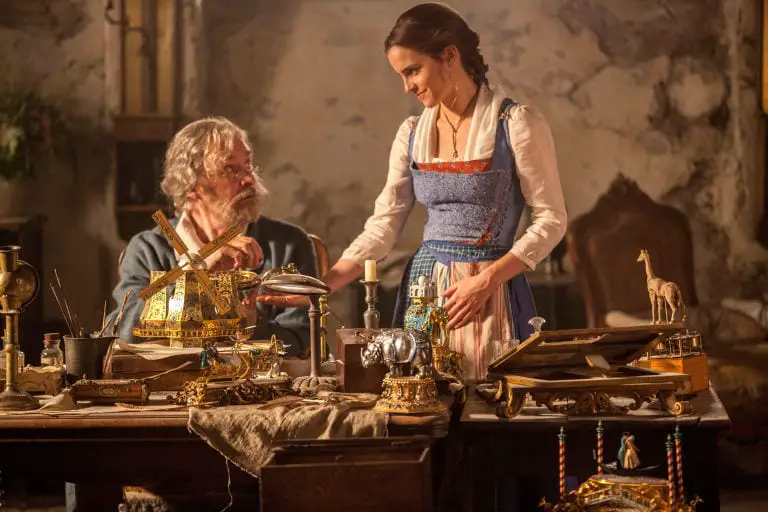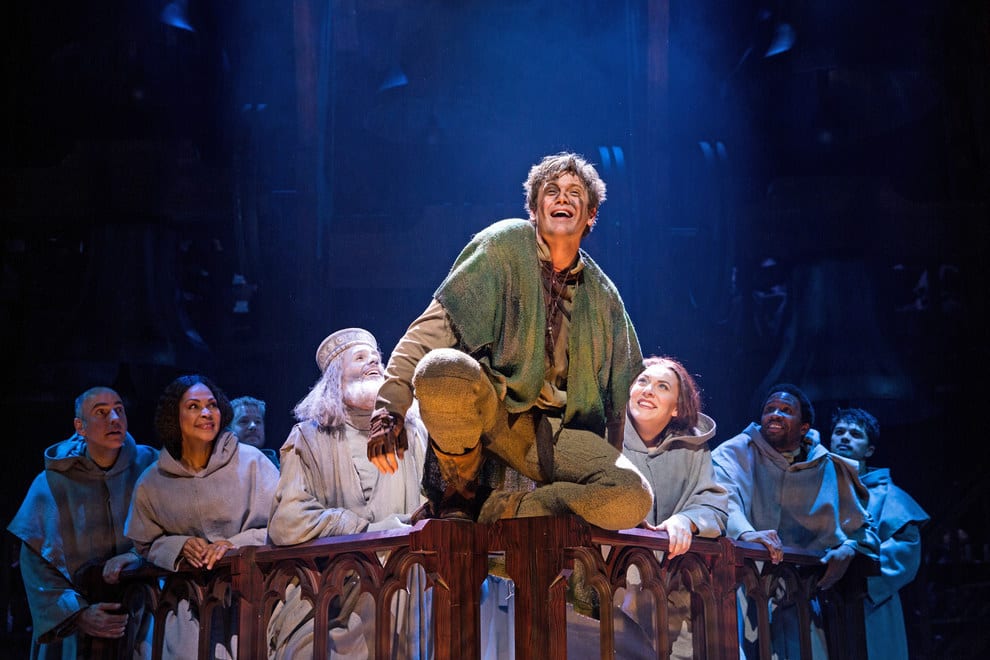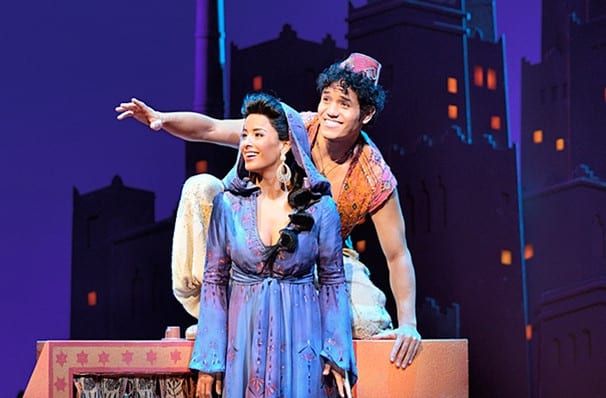With Disney’s live-action adaption of its 1991 animated classic Beauty and the Beast breaking all sorts of records, the famous company has announced a seemingly never ending list of live-action reboots of its classic animations in the hopes of recreating the success. While many loved Beauty and the Beast (2017) and I found it enjoyable, it still doesn’t beat the animation, nor does it bring a significant amount of added nuance, introspection, or value to the story.
That is my ultimate worry with the remake heavy lineup we have coming. Especially if Disney takes Beauty and the Beast as their guideline for success. Just repeat what worked before, almost to a T, add a few small things to fill in some of the gaps of animated runtime versus live action, and you’ve got yourself a hit. Now, yes of course people want reference points to the original material they loved so much, especially if you are remaking your own property, but I believe you still have to do something different with it.
You still need to look at it through a new perspective (like Maleficent) or expand exponentially upon the perspective we already have (like Cinderella). That is exactly what the Disney stage adaptations have succeeded at doing. The musicals Disney have brought to Broadway (or rather out of town in the case of Hunchback…forever weeping about the lack of a transfer) have elevated the already beloved material while still paying homage to it. They have grounded what we know and love in something more human, more mature, more complex, and more empowering. In that regard, they’re a perfect comparison to the live action remakes.
First, let’s jump into Beauty and the Beast as the first and best example because we have the direct comparison.
Expanding Upon Belle
First of all, I have to point out the fact that Disney wanted to keep the film a musical in the live-action remake. In doing so, they silently agreed to play by the rules of a musical versus a straight drama. In a musical, the use of song must be for a reason. As Anna Kendrick, fellow musical theater nerd, put it so brilliantly during her appearance on The Late Show with Stephen Colbert, “a musical is one in which the music is integrated into the plot”. The power of music in a musical is to express what can no longer be expressed with words. To move the story forward and do so in a way that only music can do. In acknowledging and conforming to that, one must recognize that you need to adhere to a different way of storytelling and characterization.
Which brings us to Belle. It doesn’t take a fine musical ear to hear that Emma Watson isn’t a gifted singer. They auto-tuned her performance to death, making already weak vocals completely lifeless and robotic. Because of this, she doesn’t have any big solos. The “Belle (Reprise)” is the closest we get and isn’t any bigger a key into Belle’s mind, feelings, and character than it was in the animated film. It’s a hint at Belle’s “want,” but it’s also its peak in the film.

In the live-action version, we don’t get any more songs than we did in the animated version to expand her character. I’ll say it again. Belle doesn’t have a single big song in the movie. They made sure the Beast had one, yet she doesn’t? Even though we can all agree it’s her film, not his. It is probably because of Watson’s singing talents that the songs were so limited, but then why do a musical if you are so hellbent on casting her?
In another world, Watson would have made a perfectly fine Belle in a reimagined non-musical. That would have also had the benefit of pushing them further away from their almost frame-by-frame replica. They would have been doing something new while also giving themselves the genre necessary to explore their protagonist’s internal and external journey without limiting her.
But if you are going to do a musical, as they did, do it for the right reasons. This is a movie that constantly pats itself on the back for its focus on Belle and making her “deeper”, yet she has no long solo piece. To make it a musical and not give your heroine a big number (or two for that matter) that express her feelings at crucial moments of growth and characterization weakens the narrative. It also makes you wonder why they chose this remake in the first place.
Belle’s Songs in the Stage Musical
Home
The first of Belle’s two big songs in the Broadway show is “Home”. It’s a number that happens right after she trades herself to be the Beast’s prisoner in place of her father in order to rescue him. The Beast angrily shows her to her room, demanding she eat dinner with him that night. Alone and confronted by her decision, her fear, her heartache, and her new position, “Home” gives us an important peak inside Belle’s head. We see her empowering emotionality and inner strength, her ultimate thematic journey in the show. There’s so much subtly and beauty in this song as Belle goes on a journey of finding something inside herself to keep going.
*Fun fact, we hear a little bit of the instrumental of this song in the live-action remake as Belle first enters her room, which made me emotional with the implication but for a random audience member, it is a less meaningful melody*
At first Belle angrily damns the Beast for all he’s done, enraged at the monster he is at that point in the show. Then, as she stares at this place she must now call “home”, she sadly reflects on what that word used to mean to her. She ponders how much all that meaning is now lost to her. Her dreams start to crumble around her, and she’s forced to face the harshness and cruelty of reality. She constantly refers to “home” as “where the heart is”. For her, her heart is with her father, and he’s a long way away. Home feels lost. She longs for a time when she could go back to her naivety, back when life might have been dull but was not yet lost. Yet, she makes an important decision here. A decision that explores the true agency and strength of Belle.
She decides, instead of fantasizing about what could have been and what was, to focus on the here and now. She decides that she decides her own fate. If her life has changed once, why not again?
“Build higher walls around me./Change every lock and key./ Nothing lasts, nothing holds all of me./My hearts far, far away/home and free.”
She’s imprisoned here but she is going to get herself through it. She will look inside to find the strength to push through and come out on the other side. She empowers and emboldens herself, no one else does. Belle decides in that moment that no matter how horrific the Beast intends to make her life, he will never imprison her spirit or her heart, for she is its lone keeper and guarder. It showcases just how incredibly active and powerful her emotional strength is under the difficult circumstances.
A Change In Me
 “A Change In Me” is Belle’s big number in the second act. It wasn’t originally in the show but was included when Toni Braxton joined the cast as Belle to show off her vocal talent. It’s now a staple in the production and really strengthens Belle’s journey of emotional agency. This song comes after the Beast lets Belle go free from his castle to go to her father after learning of his plight. It follows her journey as she has grown up over the course of the show, realizing that life is more complex than she might have imagined. The “want” that she had in her ‘I want’ song that is “Belle (reprise)” has changed along with her.
“A Change In Me” is Belle’s big number in the second act. It wasn’t originally in the show but was included when Toni Braxton joined the cast as Belle to show off her vocal talent. It’s now a staple in the production and really strengthens Belle’s journey of emotional agency. This song comes after the Beast lets Belle go free from his castle to go to her father after learning of his plight. It follows her journey as she has grown up over the course of the show, realizing that life is more complex than she might have imagined. The “want” that she had in her ‘I want’ song that is “Belle (reprise)” has changed along with her.
“For now I realize/ that good can come from bad./ That make me wise/ but oh/ it makes me glad.”
Her worldview is expanding and she’s expanding it. She sees life’s nuance. While it destroys the dreams of what she thought “adventure in the great wide somewhere” would be, those nuances make the real world come alive for her for the first time. Life itself becomes her adventure.
“I never thought I’d leave behind/my childhood dreams, but I don’t mind/I’m where and who I want to be.”
It’s a necessary song about the emotional transformation Belle goes through, and it’s a moment that needs attention. Belle, our protagonist, has gone through an essential change, the ultimate moment when you need a song in a musical.
Thematically, it is also one of the most important moments of the show and one of the strongest.
“For in my dark despair/I slowly understood./My perfect world out there/had disappeared for good./But in its place I feel/a truer life begin./And it’s so good and real/it must come from within.”
She’s growing up, but also claiming her change and her personhood. Yes, her interactions with the Beast are the trigger, but she pulled it. She sees the world differently because something within her changed, not the world.
Not to mention after this, the greater theme of “What makes a monster and what makes a man?” (not to steal from Hunchback, but it is ever so relevant) gets brought to the forefront as Gaston becomes the true beast before our eyes and the Beast, a man. We, as an audience, grow up and expand our worldview alongside Belle, and it’s a moment that is both emotional and empowering.
Comparison
They chose to expand upon Belle in the live-action film with a little hints at the backstory of what happened to her mother and almost needlessly anarchistic quirks. There’s something inherently weaker about not creating space for or exposing the strength of women in a period piece reflect how it would have existed at the time. It almost feels judgmental of the spectrum of strength that exists within women across our history. A woman in France in the 1700’s might not function in the same way we modern women would find empowering, but there’s strength and power in writing such women in a way that explores and uses the power that they had at the time. That shows them navigating the structures that existed instead of thwarting them. These women are just as valid.
 This kind of inner strength in Belle is so much a part of who she is and how she makes it out of her journey. Essentially it is also why she’s someone who could break the curse. She thinks with her head yes, but learns to rely on her heart. This almost anachronistic and empty portrayal of exposing pantaloons through the town, a lack of corseted clothes, and an endless knack for invention ultimately does a disservice to the character and to the story. Especially when compared to the empowering emotionality and inner strength that is her thematic journey in the stage musical through song, which, going back to Anna Kendrick, is the ‘language’ of musicals.
This kind of inner strength in Belle is so much a part of who she is and how she makes it out of her journey. Essentially it is also why she’s someone who could break the curse. She thinks with her head yes, but learns to rely on her heart. This almost anachronistic and empty portrayal of exposing pantaloons through the town, a lack of corseted clothes, and an endless knack for invention ultimately does a disservice to the character and to the story. Especially when compared to the empowering emotionality and inner strength that is her thematic journey in the stage musical through song, which, going back to Anna Kendrick, is the ‘language’ of musicals.
Thus, the film could have done significant character development by using these numbers to expand Belle’s character in a more compelling way. That’s not to say they needed to adapt the entire Broadway show, but they should have taken a cue from what Broadway does to strengthen the core material when needing to appeal to a wider and a more adult audience. Belle is your protagonist. In a musical, that means that we should see her journey: a journey of self-discovery, emotional agency, choice, and worldview told in song.
Other Shows
Disney has succeeded in doing this several times with its onstage musicals, elevating the material and looking at it with new eyes. For the stage version of The Little Mermaid, not only did Ariel get more songs that expanded upon her fascination with the “world above,” but they also cleverly used the medium to give Ariel a voice after she gives hers away. During this part of the show, we are given a peak into Ariel’s brain when she is first confronted by the world above and all of it’s inhabitants (including Eric). Later in “If Only (Quartet),” we hear her pleading, her wants, and her feelings for both Eric and the world she so longs to be apart of as time is running out.
It’s the same concept as giving your protagonist emotional agency, and in Ariel’s case, literally a voice, when they previously didn’t have it. Their emotions, their journey is what moves the plot forward rather than the rather dated events of princess stories where our heroines mostly find themselves in situations that just happen to them. Even Ursula has songs that express more complexity and nuance than her animated form. It’s something an audience craves when seeing real people on the stage and that anchors them in a longer imaginative journey.
The show also chose to improve and change the ending, giving Ariel the savior moment in the end. She’s the one who stops Ursula, not Eric. Essentially, the show gives her the moment to free herself of the mess she got herself into and make the choice to sacrifice the life she wants for the people she loves. It’s a beautiful way to improve upon the material in a way that an even more modern audience craves.
The Hunchback of Notre Dame (which still needs to find its way to Broadway) and Aladdin do the same. They bring to life animated characters and making them truly human, three dimensional, real, and complex. It’s all about fleshing out your heroes and heroines. When they’re played by real people, after all, they can’t be remotely cartoonish. They have to be grounded and they have to be real.

What’s to Come in the Live-Action Lineup
I can’t type the lineup here because it is literally too long, but the ones that have gotten the most buzz recently (after they gave themselves a pat on the back for not whitewashing the films) are Mulan and Aladdin. It was just announced that Mulan might indeed have songs in it, which means that there is a wide field open to expand upon Mulan, who she is, and her inner journey. Now of course this film didn’t necessarily need songs and while the songs in Mulan are absolutely incredible, there aren’t many. The strength lies within the story, ultimately. However, allowing Mulan to exist in song also gives Disney an opportunity.
It gives it a moment that is important for representation and for female warrior characters, which are not frequently allowed to show a range of emotionality. Song would be the perfect avenue for that harmonic balance between the brutality of war, the strength of humanity and women, and also the internal struggles and change that come with that.
It’s suggested that Aladdin will also be a musical. If it is, please ground Aladdin as the Broadway show did: in his grief and strife found in Menken’s best written song ‘ Proud of Your Boy’. Give us a real look at Jasmine, what she’s thinking, and what she’s going through. Let us see both their struggle in their opposite lives and bring that parallel to life. Let their star-crossed paths cross. It’ll be a more powerful journey for both of them and a more sentimental one. There’s a reason why that famous line about feeling “trapped” exists. They are on the same journey, just on opposite ends.

Overall, I worry not only about the sheer amount of these that Disney will be churning out, but ultimately about them not using the opportunity to do something exciting and new with the material, material that I love. An opportunity they could use to rectify any mistakes or missteps from the originals. They should take a page out of the Broadway teams’ adaptation book and inject something more to the pieces in order for them to stand on their own and exist as singularly strong material, nostalgia aside. However, if Beauty and the Beast is the guideline and the goal for all of these moving forward, it might already be a lost cause.

